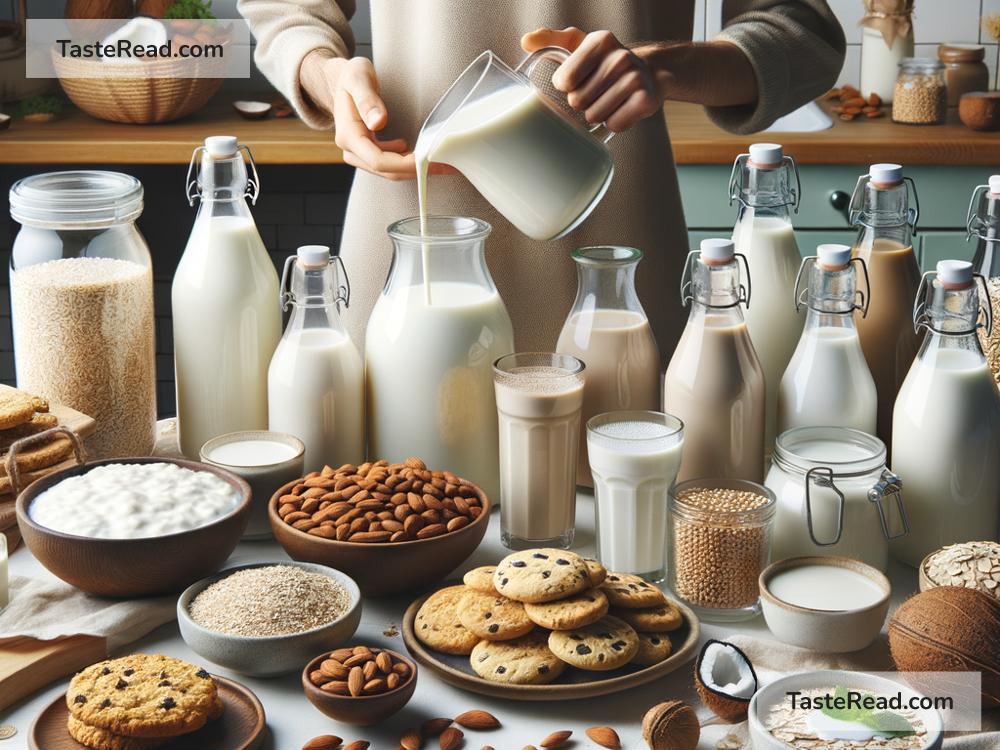How to Choose the Best Plant-Based Milks
More and more people are switching to plant-based milks because they are dairy-free, vegan, and better for the environment. They can be a great choice for people with lactose intolerance, milk allergies, or those who want to try something new. However, with so many options available, choosing the best plant-based milk can feel overwhelming. Don’t worry—this article will help you understand the differences between plant-based milks and find the one that’s right for you.
What Are Plant-Based Milks?
Plant-based milks are drinks made from nuts, seeds, grains, or legumes. They are designed to replace cow’s milk and can be used in cooking, baking, coffee, or cereal. Some of the most popular types are almond, soy, oat, coconut, and cashew milk. Each type has its own flavor, texture, and nutritional benefits.
What to Consider When Choosing Plant-Based Milks
Here are some key factors to think about when choosing plant-based milk:
1. Taste and Texture
The taste of plant-based milk can vary widely depending on the type you choose. Almond milk has a light nutty flavor, while oat milk is creamy and naturally sweet. Soy milk has a richer taste with a slightly bean-like undertone, and coconut milk has a tropical flavor. Some people love cashew milk for its smooth and silky texture. If you aren’t sure which you’ll like, experiment with different types to find your favorite.
2. Nutritional Value
Not all plant-based milks are created equal when it comes to nutrition. Some are higher in protein, while others have fewer calories. For example:
– Soy milk: High in protein (usually close to cow’s milk) and contains healthy fats.
– Almond milk: Low in calories but lower in protein.
– Oat milk: Moderate in calories and offers fiber.
– Coconut milk: High in fat and calories but low in protein.
If you want a milk that keeps you full and supports muscle growth, soy milk might be a better choice. If you’re cutting back on calories, almond milk could work well.
3. Added Sugar
Some plant-based milks contain added sugar to improve their taste. Look for options labeled “unsweetened,” especially if you’re keeping an eye on your sugar intake. Always check the nutrition label to see how much sugar is included, as even flavored varieties like vanilla or chocolate can be quite sweet.
4. Fortified Nutrients
Many plant-based milks are fortified with essential vitamins and minerals to make them similar to cow’s milk in nutrition. Check for calcium, vitamin D, and vitamin B12 on the label. These nutrients are important for strong bones, healthy blood, and overall wellness. If you follow a vegan diet, choosing a fortified plant-based milk is a smart way to prevent nutritional gaps.
5. Environmental Impact
One of the reasons people choose plant-based milks is their lower impact on the planet compared to dairy milk. However, the environmental footprint of each plant-based milk is different. For example:
– Almond milk: Requires a lot of water to grow almonds.
– Oat milk: Generally considered environmentally friendly.
– Coconut milk: Comes from tropical regions, which may involve long transportation routes.
If sustainability is important to you, oat milk may be a good choice.
6. Allergies and Dietary Restrictions
If you have allergies or specific dietary needs, make sure to choose a plant-based milk that works for you. For example, people with nut allergies should avoid almond and cashew milk. Soy milk might not be suitable for people sensitive to soy products. Carefully read the ingredients list to ensure there are no hidden allergens.
7. Price
Prices for plant-based milks can vary. Almond and oat milk are usually affordable and widely available, while specialty options like macadamia nut milk or hemp milk may cost more. Consider your budget and how often you plan to use plant-based milk before deciding.
Popular Plant-Based Milks and Their Uses
Here’s a quick guide to how some common plant-based milks are best used:
- Almond milk: Great for smoothies, cereal, and coffee.
- Soy milk: A good option for cooking, baking, and lattes.
- Oat milk: Perfect for creamy coffee drinks and oatmeal.
- Coconut milk: Ideal for curries, soups, and desserts.
- Cashew milk: Works well in creamy sauces and soups.
Experiment to Find Your Favorite
The best way to choose the right plant-based milk is to try different options. Start with a variety that seems to match your taste, dietary needs, or budget. You might discover that you love oat milk in your coffee but prefer almond milk in your smoothies. There’s no one-size-fits-all answer—it’s all about personal preference.
Final Thoughts
Choosing the best plant-based milk doesn’t have to be complicated. By considering taste, nutrition, sugar content, fortifications, environmental impact, allergies, and price, you can find the perfect milk to add to your kitchen. Plant-based milks are not only versatile but also delicious, offering plenty of options for every lifestyle. So pick up a few different kinds, try them out, and enjoy discovering your new favorite!


